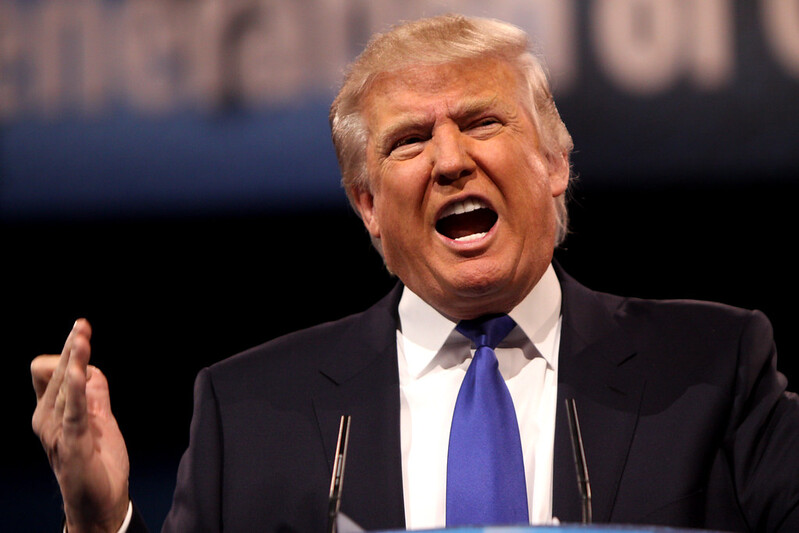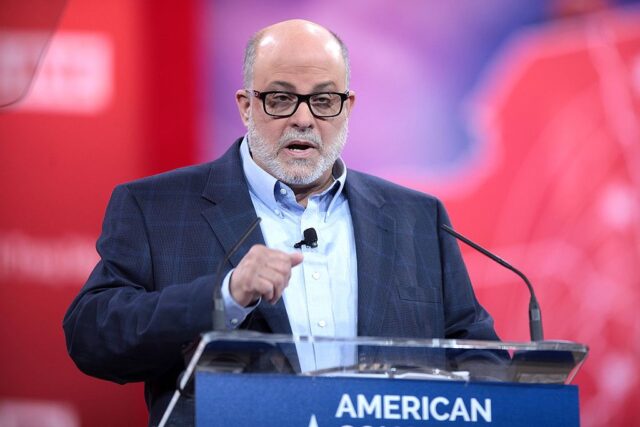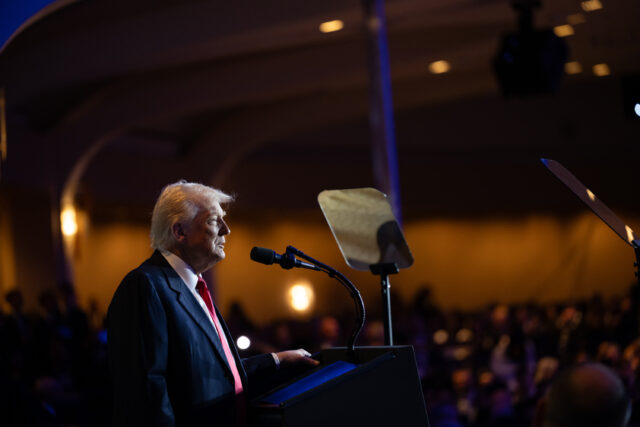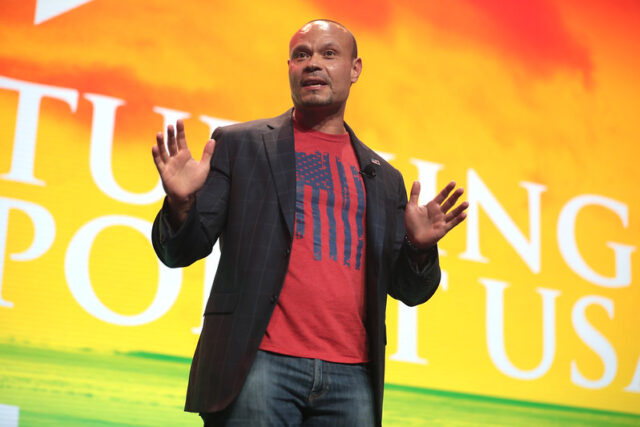President Donald Trump revealed that a suspect in the political assassination of Charlie Kirk is in custody.
“I think with a high degree of certainty, we have him in custody, in custody,” Trump announced on Fox & Friends, adding, “Everyone did a great job, worked with local police, governor, everybody did a great job. Getting somebody — you start off with absolutely nothing — and we started off with a clip that made him look like an ant, almost useless, just saw someone up there. So much work has been done, it is amazing when you start with that, and all of a sudden, you get lucky or talent or whatever it is. I think we’re in great shape. He’s in custody.”
The FBI was under bipartisan criticism for its initial handling of the search for the alleged assassin, drawing criticism even from Fox & Friends’ co-host Brian Kilmeade earlier in the show.
Lawrence Jones followed up, noting, “Your suspicion was he was radical left, and now you have more information. What can you share about his ideology?”
Trump responded:
“I think that I don’t want to go too far, like to tell you stories how it happened, essentially somebody very close to him turned him in and that happens when you have good shots, somebody will say whether a parent or whatever, I would rather not say right now,” Trump deferred. “They will announce it later today, probably talk about that.”
“Somebody close to him said, ‘Whoa, it is interesting’ — we had very good pictures, but not great or perfect. When you look at it, what happened, somebody and this happens a lot, it happened with the crazy Boston bomber, and with others. Somebody that is close recognizes a little tilt of the head and somebody close to him said, that’s him. And essentially went to the father, went to U.S. Marshal who is fantastic and the person was involved with law enforcement but was a person of faith, a minister. And brought him to a U.S. Marshal, who is fantastic and the father convinced the son, this is it.”
“And I’m always subject to be corrected, just giving you based on what I’m hearing, they will give you,” Trump explained. “I just heard about it five minutes before I walked in. As I’m walking in, they said looking good, they have the person they wanted.”
Watch:
“So you have breaking news,” Trump boasted to his Fox & Friends hosts. “Don’t you, you always have breaking news, Ainsley? Sean will be disappointed we’re not doing it on his show,” he added, in reference to Ainsley Earhardt’s fiance, Sean Hannity.
Robinson was taken into custody on Thursday night in southern Utah after having allegedly confessed to his father, Matt Robinson.
Robinson was a student at Utah State University on a scholarship, insiders confirmed to Daily Mail.
This is a breaking news story. Please check back for updates.















